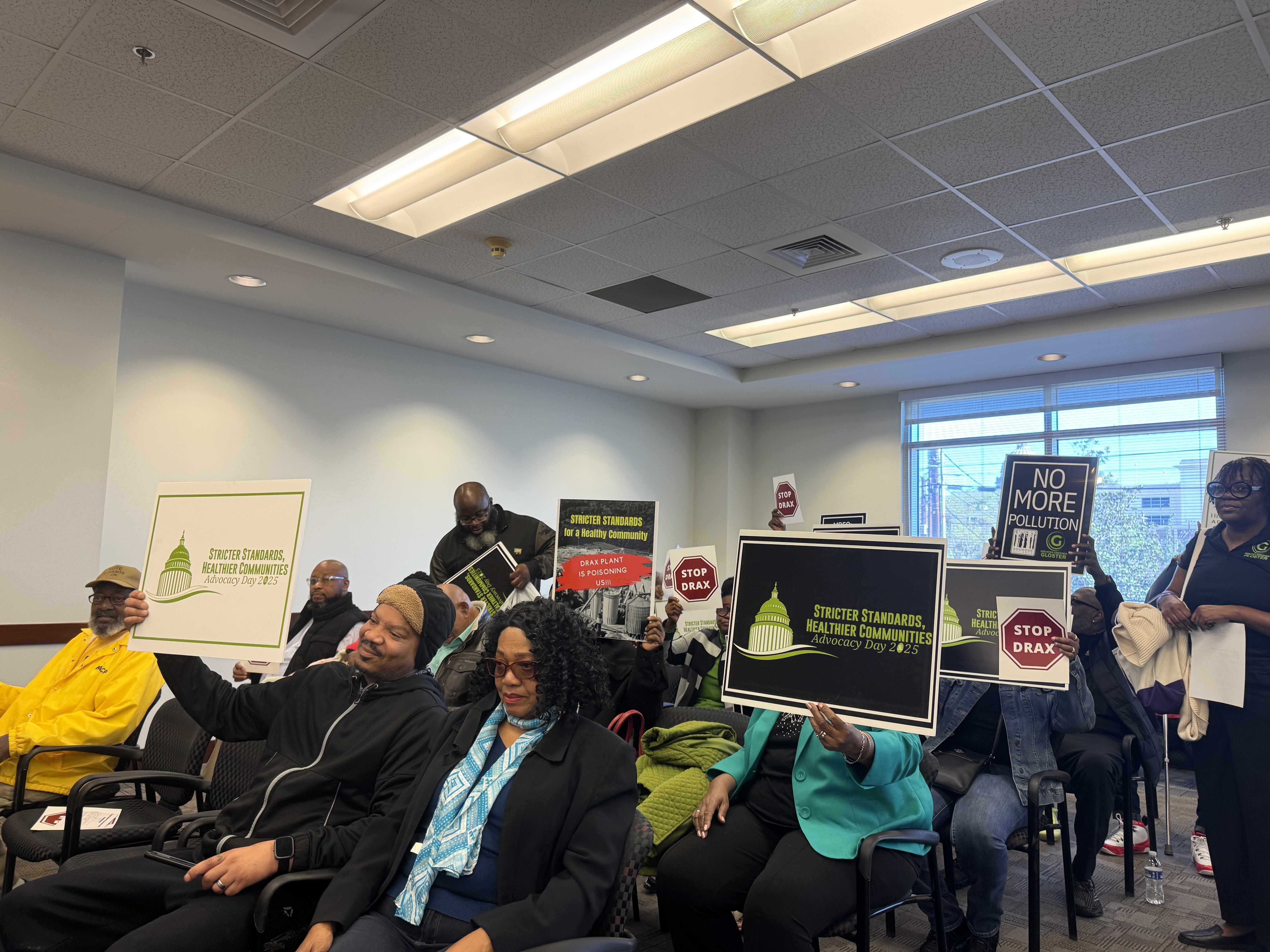During an over four-hour public hearing at the MDEQ headquarters in Jackson Tuesday, residents of Gloster shared emotional testimony on what they say are the detrimental health impacts of pollution from the company.
Gloster is a town in Amite County with a population of about 897 people, according to data from the 2020 census. At least 70% of residents are Black and the median income is $22,500.
On its website, Drax claims to have nearly 70 permanent positions at its plant in the city. The company says it has contributed money toward a walking track in the community and has given away holiday turkeys. Still, residents who attended the public hearing were concerned about the plant’s presence.
Carmella Causey, a Gloster resident, told the board she has been forced to constantly use oxygen.
“It does not make sense that we are being killed in our community in broad daylight by an object that we can’t see,” she said.
Causey said she now has congestive heart failure, which she attributes to pollution from the plant.
“It’s cutting my life short,” she said. “Please do not let them cut my life any shorter.”
Andrew Whitehurst, who works with the Healthy Gulf environmental group, told the board that a public meeting for residents to voice concern was held last November.
“If you weren't there, you didn't hear the frustration and fear in the voices of people, both young and old, who spoke about the health problems they're already experiencing due to having to breathe the air in and around Gloster,” he said. “Two elementary school children made comments. One read her own statement about her breathing problems and not being able to go outside when the air was bad, and the father of a little boy asked the MDEQ personnel to allow his son's constant runny nose, mucus and congestion to be included as a part of the record with a photograph.”
The chief of MDEQ’s air division, Jaricus Whitlock, told the board that the new permits Drax requested could have potentially increased the amount of production, and pollution, from the plant.
“It very well likely could increase above those particular thresholds,” he said. “At some particular point in time. It may go back down, but it might stay above it.”
In October 2020, MDEQ issued Drax a $2.5 million fine for exceeding the emissions standards allowed by the permits it had at the time. MDEQ fined the company $225,000 in September 2024 for again exceeding its allowed emissions limits.
The new operating permits would have allowed Drax to change from being a minor source of hazardous air pollutants (HAPs) to a major source of HAPs.
Brad Mayhew is the Vice President of Southern operations at Drax and he attended today’s meeting.
“The goal is to get an operating permit that matches what we're doing,” he said. “Yes, with the increased limits, we could increase production, but not above whatever the permit limits.”
However, the Environmental Board ultimately voted to deny the company’s request to change its permits. One board member abstained from the vote.
Board Chairman, Doug Mann, addressing the representatives of Drax, said he hopes there will be ways in the future to mitigate the effects of the plant’s pollutants.
“We encourage you to continue to work with MDEQ staff, to monitor those of chemicals and to mitigate their production and to capture them and keep them out of the environment,” Mann said. “Keep your finger on the pulse of the community.”
Krystal Martin lives in Gloster, and is a co-founder of the group, Greater Greener Gloster. Martin wants accountability.
“Moving forward, I mean, I see hope,” she said. ‘We still have a ways to go because we know Drax is not going to stop with the hazardous air pollution. So we still have a ways to go. We have laws and policies that need to be changed in the state of Mississippi.”
The Drax plant will continue to produce wood pellets according to the emissions guidelines of its last permit.
According to Whitlock of MDEQ, the company is currently in compliance with those standards.




